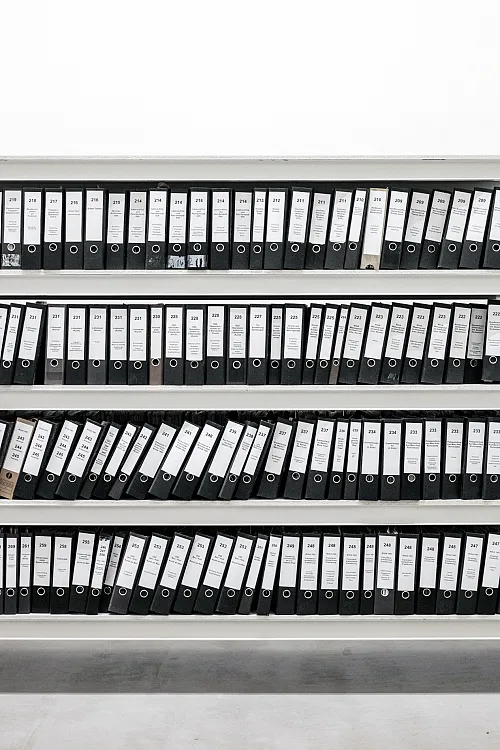22.01.2019
Liability of parent companies for infringement of EU competition by their subsidiaries: limitation period for applying sanctions and the (wide) interpretation of the EU court of justice
Introduction
The Court of Justice of the European Union (CJEU), in judgment of 27 April 2017, Akzo Nobel and Others v. Commission, EU:C:2017:314, C-516/15 P (“judgment”),(1) ruled on the liability of parent companies in relation to competition law infringements committed by their subsidiaries, notably about the limitation period regarding the European Commission’s (“Commission”) power to impose penalties on parent companies in case such power is time-barred in relation to their subsidiaries.
Background to the case
On 11 November 2009 the Commission (2) adopted a decision pursuant to which it considered that certain companies from the Akzo Nobel group – notably Akzo Nobel (the group’s parent company), Akzo Nobel Chemicals GmbH, Akzo Nobel Chemicals BV and Akcros Chemicals – infringed Article 101 of the Treaty on the Functioning of the European Union (TFEU) (previously, Article 81 EC) and Article 53 of the Agreement on the European Economic Area (EEA) by participating in two sets of anticompetitive agreements and concerted practices relating, first, to the tin stabilisers sector and, secondly, to the epoxidised soybean oil and esters sector (“Decision”).
Pursuant to the Decision, the Commission split the participation of Akzo Nobel, Akzo Nobel Chemicals GmbH, Akzo Nobel Chemicals BV and Akcros Chemicals in the infringements into three separate infringement periods: (i) before 28.06.1993 – Akzo Nobel Chemicals GmbH and Akzo Nobel Chemicals BV, 100% owned, indirectly, by Akzo Nobel, participated directly in the infringements; (ii) between 28.06.1993 and 02.10.1998 – the infringements were committed by the Akcros Chemicals partnership, which had centralised the heat stabilisers production and sales activities of the Akzo group and did not have a legal personality in its own right; and (iii) between 02.10.1998 and 22.03.2000 – the infringements were committed by Akcros Chemicals, which had absorbed the business of the Akcros Chemicals partnership. Akzo Nobel, as the ultimate group’s parent company, was held liable for the entire infringement period, from 24.02.1987 until 22.03.2000.
The companies involved appealed the Decision before the General Court (GC) arguing, inter alia, that the Commission had infringed limitation period rules contained in Article 25(1)(b) of Regulation (EC) No. 1/2003,(3) notably because: (i) the Commission’s power to apply sanctions to Akzo Nobel Chemicals GmbH and Akzo Nobel Chemicals BV was time-barred from 28.06.1998, taking into account that those companies ceased their participation in any infringement on 28.06.1993; and (ii) both these companies, and Akzo Nobel as the parent company, may not be held liable for infringements committed during that time-period.
The GC annulled the decision(4) in respect of the fines imposed on Akzo Nobel Chemicals GmbH and Akzo Nobel Chemicals BV for the first infringement period because the limitation period had expired, and dismissed the action as to the remainder. The GC judgment was appealed to the CJEU, notably in so far as it held that liability for the fines originally imposed on Akzo Nobel Chemicals GmbH and Akzo Nobel Chemicals BV for their participation in the infringements could still be attributed to Akzo Nobel after the annulment of those fines by the GC on the basis of the statute of limitations.
The CJEU judgment
The CJEU dismissed the appeal, basing its judgment on the following grounds:
(i) The court recalled that the term “undertaking” must be understood as designating an economic unit and, in that context, took into due consideration that when a parent company is held liable for conduct committed by its subsidiaries it is personally fined for an infringement of EU competition rules which is attributed directly to it, due to decisive influence which it exercised over the subsidiary and through which it was able to determine the subsidiary’s conduct on the market;
(ii) According to the CJEU, in a situation where no factor individually reflects the conduct for which the parent company is held liable, the reduction in the amount of the fine imposed on the subsidiary jointly and severally with its parent company must, in principle, where the necessary procedural requirements are satisfied, be extended to the parent company;
(iii) The Commission’s power to impose penalties can be time-barred vis-à-vis the subsidiary but not the parent company, even though the parent company’s liability may be entirely based on the unlawful conduct of that subsidiary;
(iv) The unlawful actions taken by Akzo Nobel Chemicals GmbH and Akzo Nobel Chemicals BV during the first infringement period (before 28.06.1993) were attributed to Akzo Nobel and this parent company was thus held individually liable for actions contrary to EU competition rules which it was itself deemed to have taken during that period. Cumulatively, Akzo Nobel also participated in unlawful conduct during the second and third infringement periods, until March 2000;
( ) On the one hand, Akzo Nobel is deemed personally responsible and joint and severally liable for the unlawful conduct committed during the first infringement period, as it formed an economic unit with the other subsidiaries;
(i) On the other hand, factors specific to the parent company may justify assessing the parent company’s liability and that of its subsidiary differently, even if the liability of the former is based exclusively on the unlawful conduct of the latter.
In light of the above assumptions, the CJEU decided that the Commission’s power to impose penalties on Akzo Nobel regarding the first infringement period was not time-barred as the unlawful conduct committed by the latter exceeded that time-period and ceased only in March 2000. Hence, the CJEU considered that Akzo Nobel must be held liable regarding all the infringement periods regardless of the fact that the Commission’s power to sanction its subsidiaries was already time-barred in relation to the first infringement period.
The CJEU’s position in this judgment allows for a wide interpretation of parent companies’ liability for infringements committed by their subsidiaries, with consequences in terms of the moment the limitation period (for the Commission’s power to address decisions and apply fines to parent companies) starts and expires, notably when the possibility of applying penalties to subsidiaries is already time-barred.
The judgment of the EU Court of Justice in the Akzo Nobel case widens the possibility of holding parent companies liable for EU competition rule infringements committed by their subsidiaries by allowing the Commission to fine parent companies in cases where such power is already time-barred in relation to their subsidiaries.
_______________________________________
(1) Judgment accessed and available at curia.europa.eu.
(2) Comission Decision C(2009)8682, of 11 November 2009, COMP/38589.
(3) Council Regulation (EC) No. 1/2003 of 16 December 2002 on the implementation of the rules on competition laid down in Articles [101] and [102] of the Treaty, OJ L 1 of 4 January 2003.
(4) Judgment of 15 July 2015, Akzo Nobel and Akcros Chemicals v Commission, T-485/11, EU:T:2015:517, accessed and available at curia.europa.eu.



